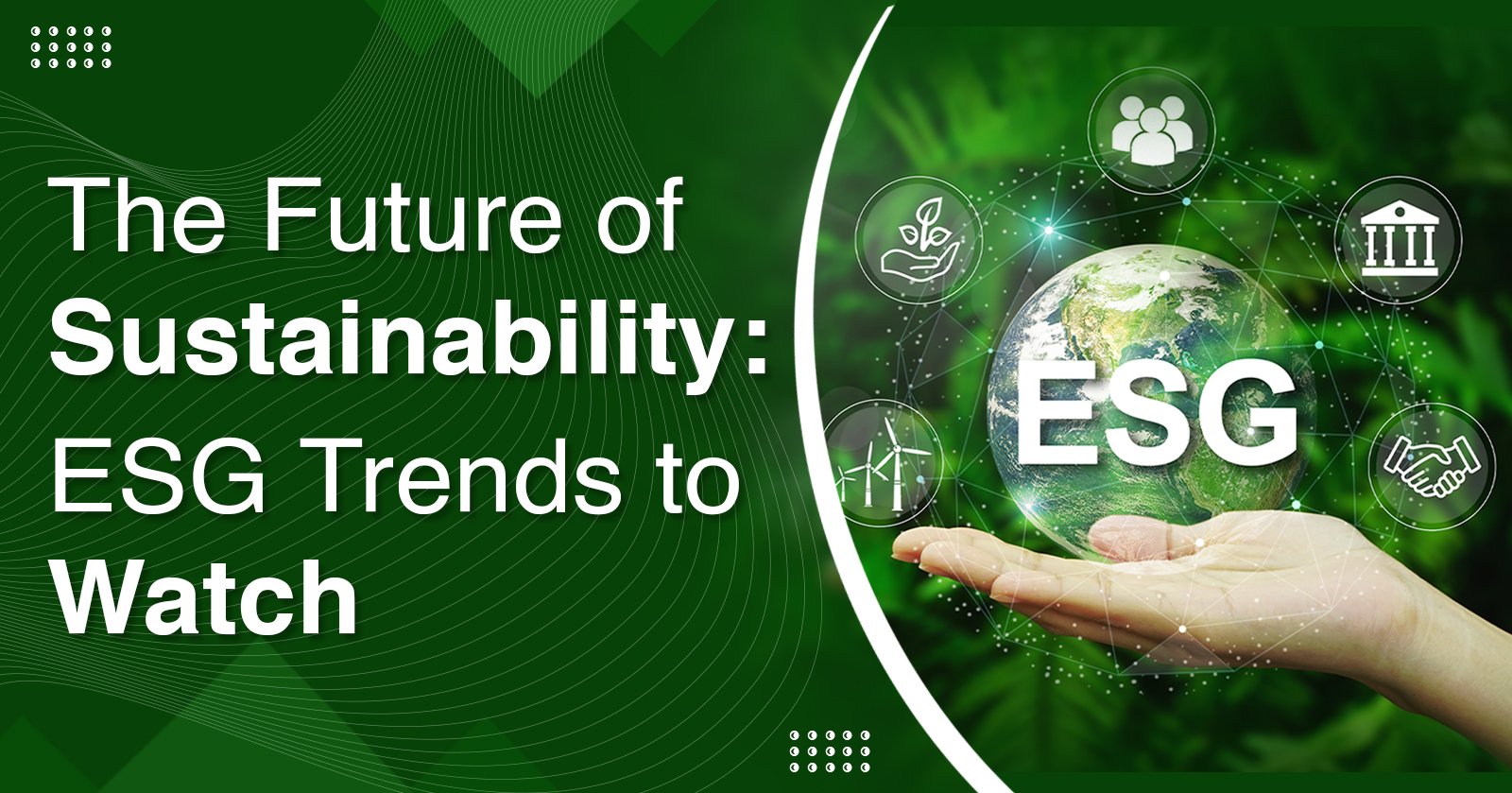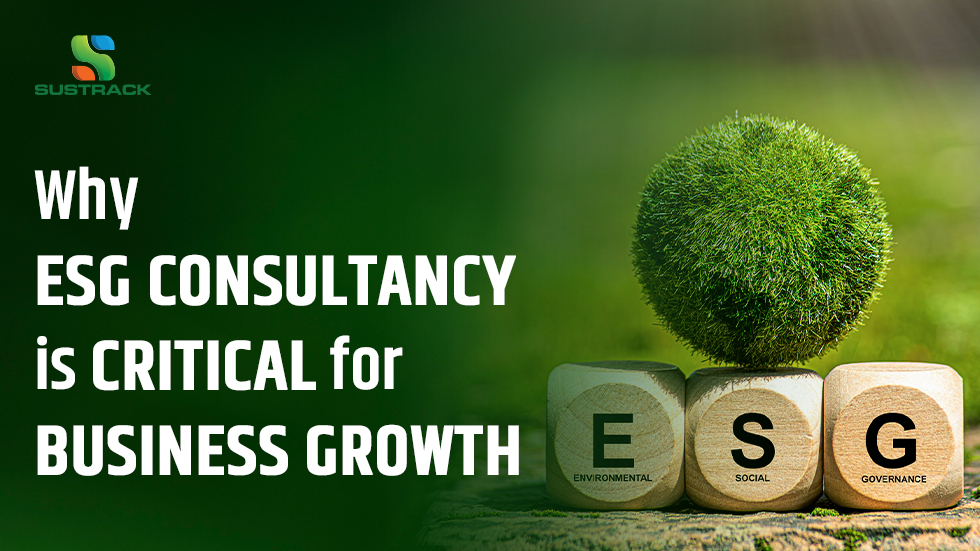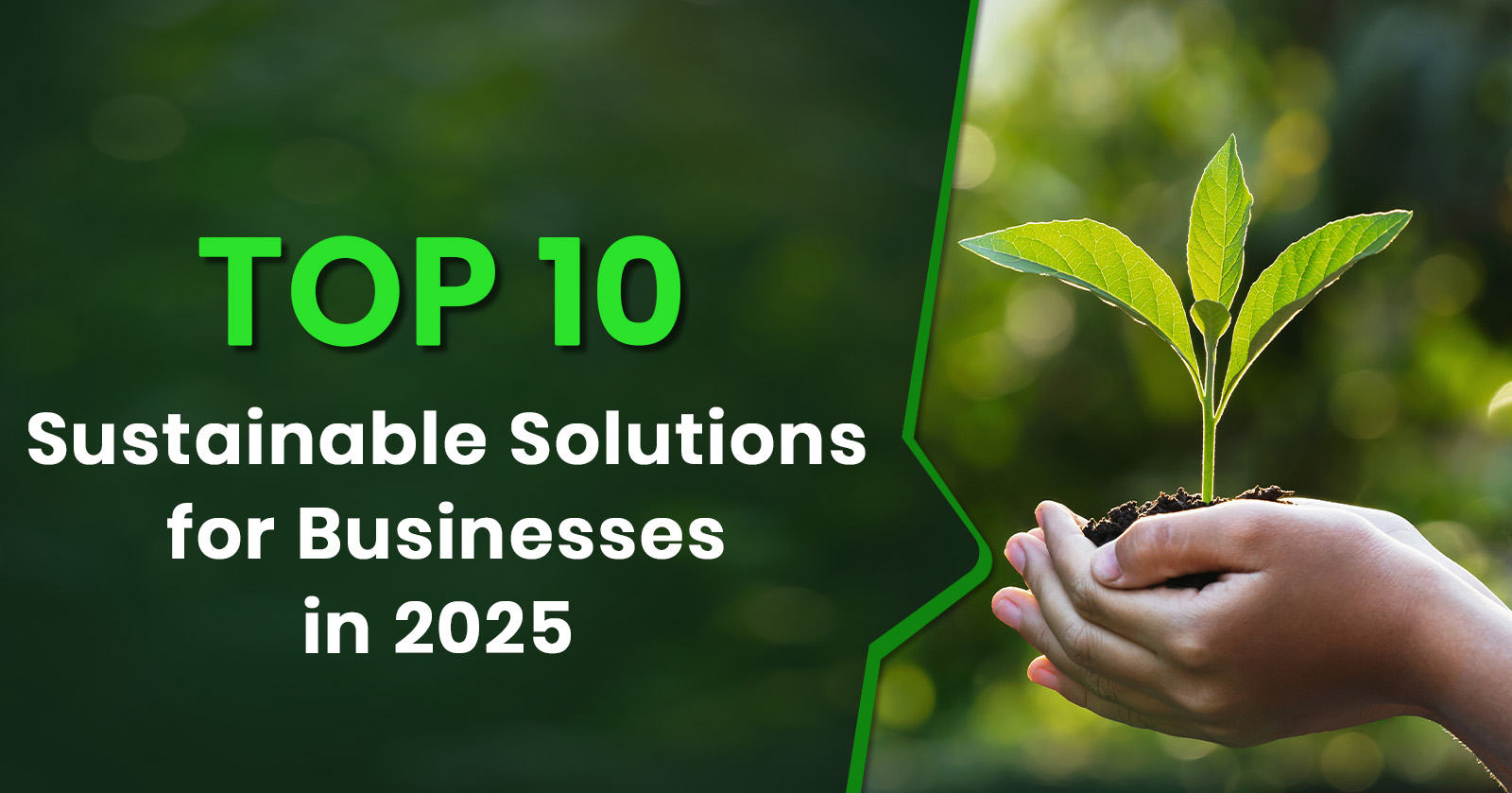The Future of Sustainability: ESG Trends to Watch

In 2025, adopting ESG trends is no longer optional; it’s essential. All over the world, the investors demand transparency, regulators enforce stricter disclosures, and consumers prefer brands that act responsibly. What was once a good-to-have sustainability development effort has now become business-critical, driving resilience, trust, and long-term growth for companies that lead the way.
Rising Importance of ESG in Business Strategy
ESG strategy is no longer confined to the annual reports or CSR initiatives; it has become a core business strategy. Organisations across industries are recognising that environmental responsibility, social equity, and strong governance directly influence their long-term value creation. Investors & regulators now view ESG performance as an indicator of stability and future growth, while customers are more loyal to brands that demonstrate genuine responsibility. At the same time, businesses that neglect ESG face higher risks, ranging from regulatory penalties to reputational damage.
This shift means the companies must integrate ESG into their operational models, supply chains, and decision-making processes. ESG trends are shaping how businesses build up resilience, attract capital, and stay competitive in a rapidly changing marketplace.
The Shift in ESG Regulations
The ESG landscape is undergoing an important transformation, by moving from voluntary reporting to mandatory compliance. What once depended on the goodwill and self-disclosure is now being shaped by the strict regulatory frameworks, pushing companies to provide accurate, standardised, and transparent sustainability data.
The frameworks like the EU’s Corporate Sustainability Reporting Directive (CSRD) and the International Sustainability Standards Board (ISSB) are drawing a new benchmarks for disclosure. These regulations ensure that non-financial reporting is treated with the same seriousness as financial reporting, making ESG performance measurable and comparable across industries.
In the Indian Context, the Securities and Exchange Board of India (SEBI) has introduced the Business Responsibility and Sustainability Report (BRSR), and more recently, the BRSR Core, a standardised, assurance-backed framework for the country’s top listed companies. This move makes sustainability reporting not an option but an enforceable compliance requirement, ensuring companies disclose metrics on emissions, energy efficiency, employee well-being, and governance practices.
To prepare, businesses are investing in digital tools, ESG data management systems, and expert advisory support to ensure compliance and avoid reputational or financial setbacks. Forward-looking companies are going beyond just meeting regulations; they are using ESG disclosures to build investor trust, improve transparency, and position themselves as leaders in sustainability.
Sustainability Disclosure and Transparent Reporting
As ESG expectations rise, sustainability disclosure has become as critical as financial reporting. Stakeholders today demand clear, consistent, and comparable information on how companies manage environmental, social, and governance risks. This has led to the widespread adoption of globally recognised frameworks such as the Global Reporting Initiative (GRI) Standards, Sustainability Accounting Standards Board (SASB), the International Sustainability Standards Board (ISSB), and the Corporate Sustainability Reporting Directive (CSRD) in Europe.
These frameworks bring structure and accountability, ensuring companies don’t just make claims but back them up with measurable data. The shift highlights a growing reality: non-financial reporting is now just as important as financial results when it comes to evaluating a company’s performance, resilience, and long-term value creation.
However, disclosure is only as strong as the data behind it. Accurate, verifiable, and timely ESG data is crucial for building investor trust and meeting regulatory standards. Companies that fail to ensure credibility risk accusations of greenwashing, loss of stakeholder confidence, and even regulatory penalties.
Forward-thinking businesses are now investing in robust ESG data systems, assurance processes, and expert guidance to strengthen transparency. By doing so, they not only meet compliance requirements but also enhance their reputation and competitive edge in the sustainability-driven economy.
Technology as a Catalyst for ESG Integration
Technology is making ESG measurable and actionable. AI helps predict risks and assess performance, blockchain brings transparency to supply chains, and IoT sensors enable real-time tracking of energy, water, and waste.
With these digital tools, companies can move from annual reports to continuous ESG monitoring and carbon tracking, ensuring compliance, boosting credibility, and driving smarter sustainability decisions.
Investor Pressure and Stakeholder Expectations
Investors today view ESG performance as a key factor in investment decisions, rewarding companies with strong sustainability credentials and penalising those with poor disclosures or weak governance.
At the same time, customers increasingly prefer brands that are ethical, transparent, and environmentally responsible. This dual pressure from investors and consumers makes ESG not just a compliance issue but a driver of trust, loyalty, and long-term growth.
Decarbonization and the Net Zero Imperative
Global corporations are making bold Net Zero commitments, reshaping how industries operate. The path to decarbonization includes a shift to clean energy, adoption of low-carbon technologies, and participation in carbon credit and offset mechanisms.
For businesses, this isn’t just about compliance; it’s about building resilience, attracting green investments, and staying competitive in a low-carbon economy.
Circular Economy and Resource Efficiency
Businesses are moving from linear “take-make-dispose” models to circular systems that prioritise reuse, recycling, and resource efficiency. Trends like waste-to-energy, material recovery, and closed-loop supply chains are helping companies cut costs, reduce emissions, and minimise waste.
This shift not only protects the environment but also creates new opportunities for innovation and sustainable growth.
Social Impact: DEI and Human Capital
Diversity, Equity & Inclusion (DEI) builds stronger organisations, diverse teams spark innovation, equitable policies foster fairness, and inclusive cultures drive belonging and retention. Companies integrating DEI effectively see gains in creativity and employee engagement. For instance, firms embracing intersectional DEI strategies, spanning socio-economic and neurodiversity, are redefining inclusive workplaces around the globe.
Employee well-being is now inseparable from DEI. Organisations are rolling out mental health programs, inclusive benefits, and psychologically safe environments to support holistic care. Tech-powered wellness, like AI-based mental health tools and personalised counselling apps, is becoming the norm, boosting emotional health and engagement at work.
In India, ESG isn’t just global rhetoric; it’s deeply rooted in social transformation. Nearly 75% of companies incorporate ESG practices into HR functions, from fair hiring to well-being initiatives and inclusive workplace design. Policies like gender-neutral restrooms and inclusive leave are becoming more common, reinforcing DEI as a core part of workforce strategy.
The Future of ESG
ESG is evolving from a compliance requirement to a growth driver. Companies that integrate sustainability into their core strategy gain more than regulatory approval; they build resilience, attract investment, and strengthen customer loyalty.
Research consistently shows that ESG leaders outperform their peers, delivering higher returns and long-term value. For forward-looking businesses, ESG is not a burden but a competitive edge in the marketplace of the future.
Sustrack as a Partner in ESG Transformation
Sustrack helps organisations navigate the evolving ESG landscape, aligning business practices with global standards like GRI, SASB, and BRSR Core.
With expertise in sustainability disclosure, carbon impact reduction, and ESG strategy, Sustrack provides actionable insights that go beyond compliance. Their tailored solutions enable businesses to stay ahead of ESG trends, build trust with stakeholders, and transform sustainability into a strategic advantage.
Conclusion
Sustainability is no longer a side initiative; it is at the heart of business success. Companies that embrace ESG early gain resilience, stakeholder trust, and long-term growth, turning responsible practices into a strategic advantage for the future.



